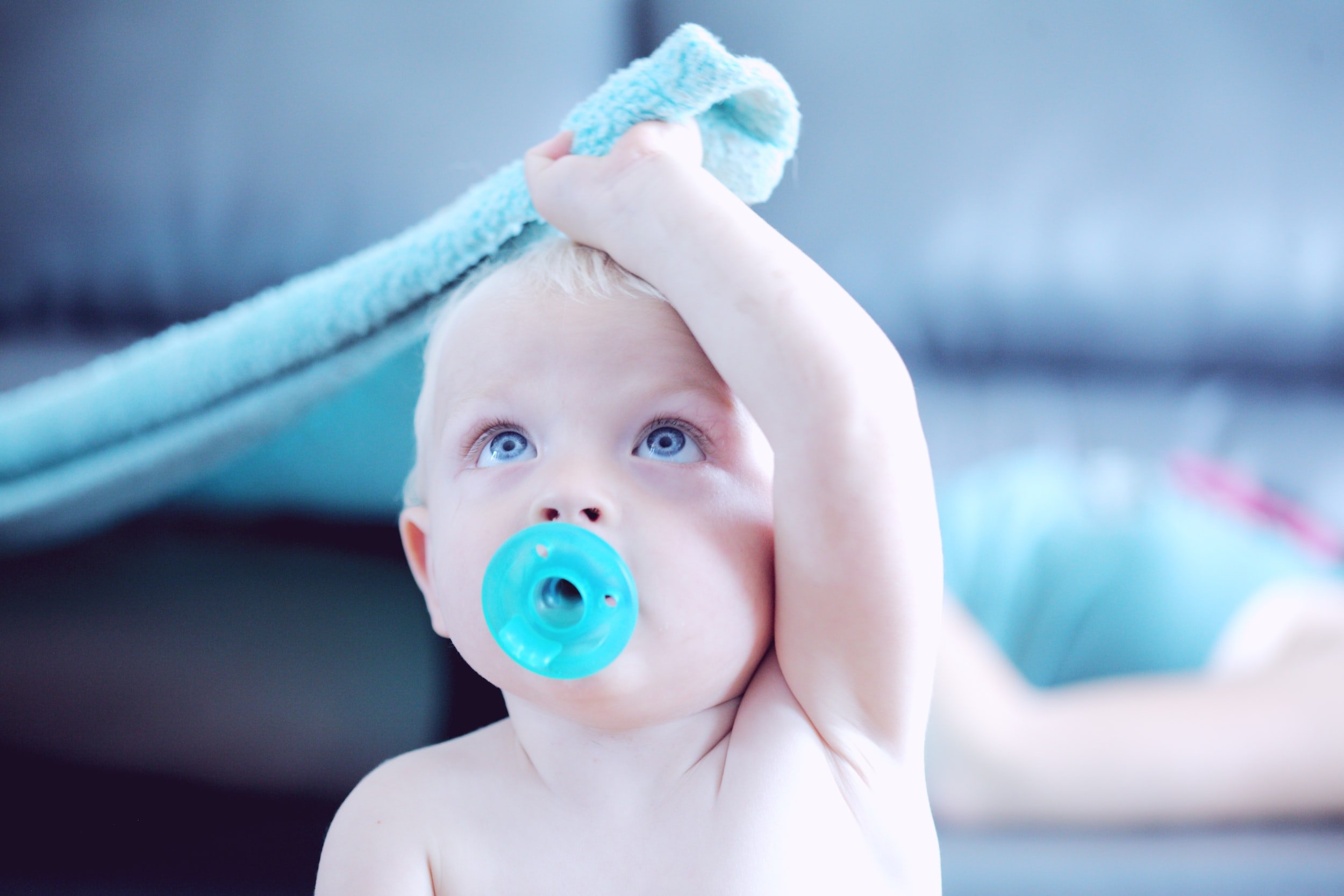Dummy Diplomacy: Navigating the World of Pacifiers for your little one
“75% of babies use a pacifier during their first year of life” - Study by the American Academy of Pediatrics.
For many parents, pacifiers, or "dummies," can be a lifesaver when it comes to soothing a baby. They provide comfort and help little ones self-soothe, making them a popular choice for many caregivers. However, despite their widespread use, pacifiers have long been a topic of controversy among parents . While some tout the benefits of pacifiers, others argue that they can cause dental problems and interfere with breastfeeding. In this article, we'll take a closer look at the use of pacifiers in babies.
What are the benefits of pacifiers?
Soothing effect:
One of the most significant benefits of using dummies is their soothing effect on babies. According to an article in the Journal of Pediatric Health Care, "The sucking reflex in infants is a natural way for them to calm and soothe themselves." Dummies can provide this calming effect, which can be particularly helpful during fussy periods or when trying to get a baby to sleep.
Reduced risk of sudden infant death syndrome (SIDS):
Smith & Colpitts (2019) in Paediatr Child Health found no randomized studies that assessed the use of pacifiers in babies and infants and the risk of SIDS. However, they flagged that this is hardly surprising as many parents would not agree to such randomization and the required sample size would be large. Smith & Colpitts (2019) conclude in their review that pacifier use during sleep may specifically improve autonomic control of breathing, airway patency, or both (through the theory that the sucking motion may help keep the airway open). Further, it has been hypothesized that the pacifier could prevent accidental rolling leading to less risk of SIDS.
3. Easier weaning:
Another benefit of using dummies is that they have the potential to make weaning easier. According to an article in the Journal of Advanced Nursing, "The use of pacifiers can help a baby learn to self-soothe and eventually reduce their reliance on other soothing methods, such as breastfeeding." This can - indirectly - make the weaning process smoother and less stressful for both baby and parent.
4. Reduced circulating cortisol levels:
Finally, using dummies may help reduce stress in both babies and parents. A study published in the Journal of Child Health Care found that "babies who used pacifiers had lower levels of cortisol, a hormone associated with stress, than those who did not." Lower stress levels can lead to better sleep and through this improved wellbeing.
Considerations when using dummies
Dental problems:
One of the main concerns with using dummies is the potential risk of dental problems. According to an article in the Journal of Dentistry, "Prolonged and frequent use of pacifiers can lead to changes in the development of teeth and the alignment of the jaw." Prolonged and excessive use of pacifiers can cause misalignment of the teeth and jaw, leading to orthodontic issues later in life. The pressure from sucking on a pacifier can cause the front teeth to move forward, and can even cause the roof of the mouth to narrow, which can affect speech development.
(Potential) Effects on speech delay:
Strutt & Willoughby (2021) showed that the majority of speech outcomes are not significantly associated with dummy use. However, results suggest that high frequencies of dummy use may result in more frequent atypical speech patterns (incorrect phonics), while the dummy is in place. Older children tend to make fewer atypical errors, potentially counteracting any cumulative impacts.
Best dummies to consider
NUK Orthodontic Pacifier: The NUK Orthodontic Pacifier is designed to promote healthy oral development. Its shape mimics the shape of a mother's nipple, which can help prevent dental problems and encourage natural sucking.
Philips Avent Soothie Pacifier: The Philips Avent Soothie Pacifier is made from medical-grade silicone and is designed to be safe and comfortable for babies. It is also easy to clean and sterilize, making it a popular choice for parents.
MAM Pacifiers: MAM Pacifiers are designed to be easy for babies to hold and feature a soft, textured nipple that mimics the feel of a mother's breast. They are also designed to promote healthy oral development and are available in a variety of designs.
In conclusion, pacifiers can be a helpful tool for soothing and comforting babies, especially during the first year of life when the urge to suck is strong.
By Dr. Perkins


